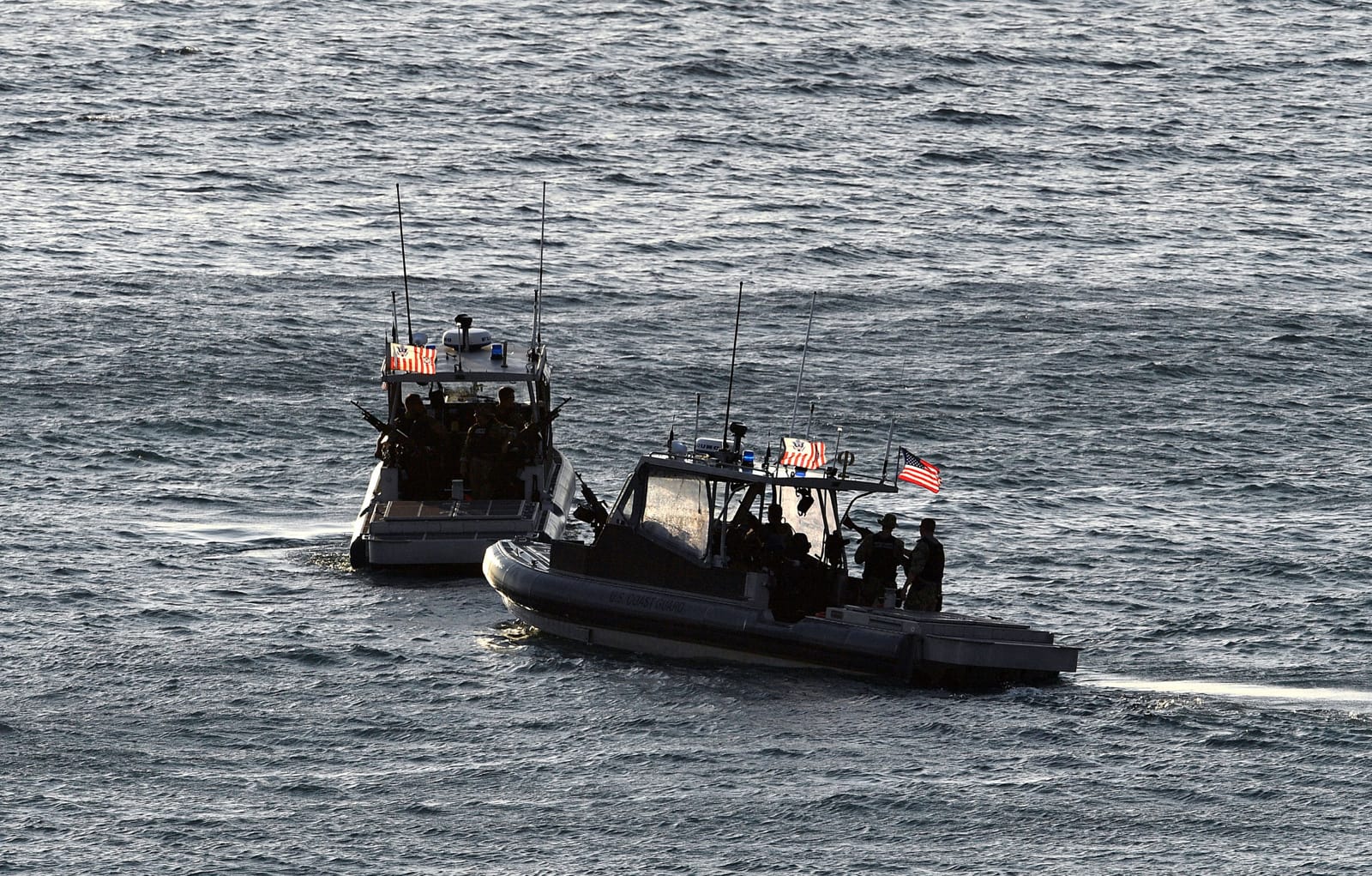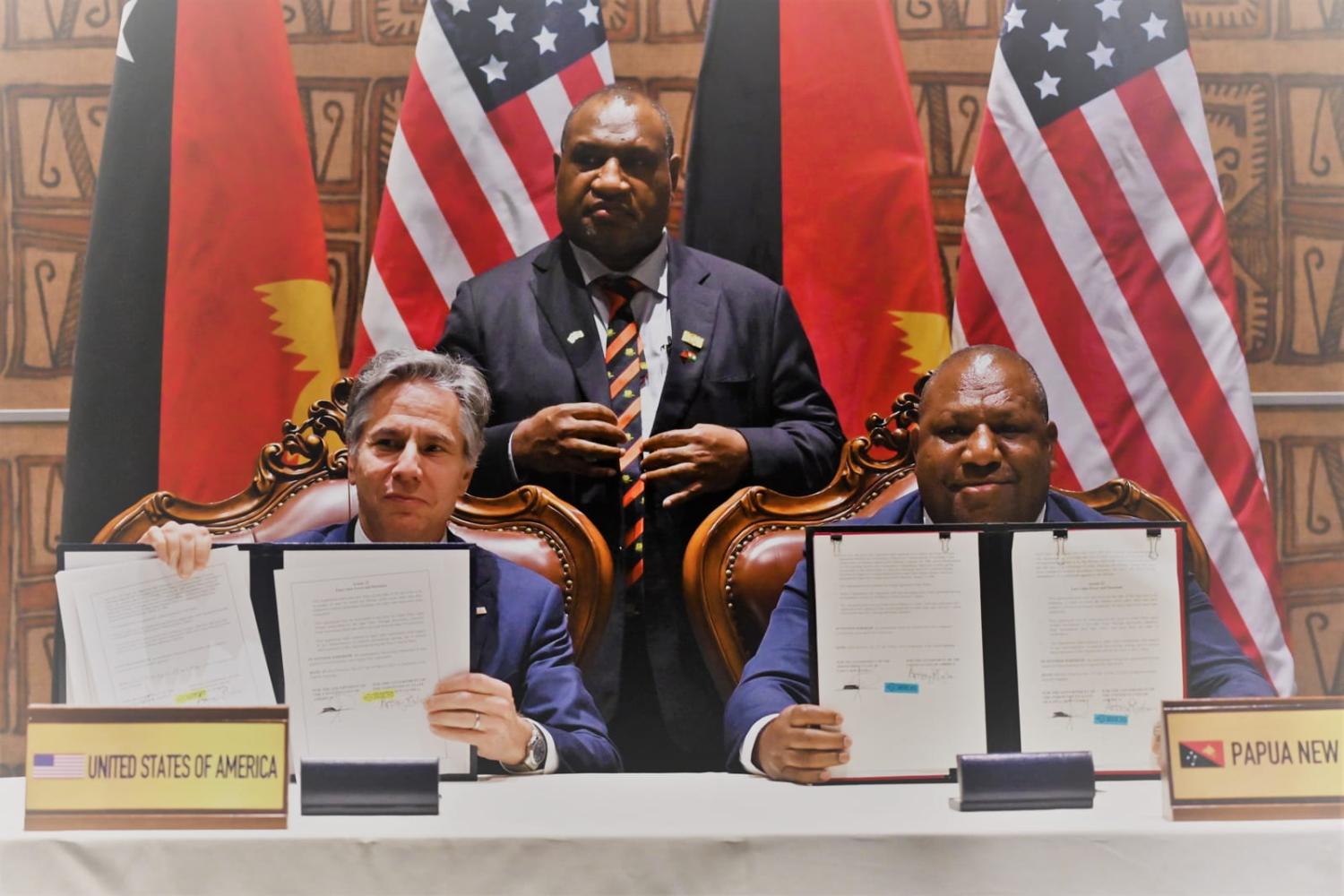In May, the United States and Papua New Guinea signed off on a Defence Cooperation Agreement (DCA). While the deal has clear benefits for PNG and potentially Australia, it is not without pitfalls, too.
When international outlets first began reporting news of the agreement, it was apparent that the DCA’s wide-ranging scope belied its anodyne name. The early leaks appeared to be in response to anxieties within segments of PNG that the deal ran counter to the country’s sovereignty and “friends to all, enemies to none” foreign policy outlook. These concerns have not yet entirely abated.
The official text of the DCA, which will be in force for 15 years, was made public in mid-June. The DCA grants the US “unimpeded access” to six mutually agreed facilities, ports and airports, including the US, PNG and Australian-developed Lombrum Naval Base on Manus Island. These facilities “or portions thereof”, may even be “designated … for exclusive use by US forces”.
In addition to standard bilateral defence activities, the DCA enables US forces to use the facilities for transits and refuelling (including for assets conducting reconnaissance), the pre-positioning of equipment, and the staging and deployment of forces and materiel.
As is common – though rarely uncontroversial – in such agreements, the United States will exercise “exclusive criminal jurisdiction” over its personnel. The DCA was also accompanied by a coast guard cooperation agreement that would boost PNG maritime surveillance capacity in the face of rising Illegal, Unreported and Unregulated (IUU) fishing and transnational crime.
As PNG Prime Minister James Marape has stressed, the DCA is an “umbrella agreement” outlining possible activities. Further consultation with PNG will still be required.
In its breadth, the DCA is still one of the most comprehensive agreements signed with a non-ally since the US “pivot” to Asia was first announced in 2012. In some aspects, it may even go beyond the US-Philippines Enhanced Defence Cooperation Agreement (EDCA), which could restrict under what conditions defence materiel is placed at facilities. Admittedly, the bar is relatively low.
The inability of Washington to persuade non-aligned Indo-Pacific countries of the merits of US basing has been persistently noted. Some requests have even been met with outright incredulity, such as when the United States asked Jakarta in 2020 for the rights to refuel spy planes in Indonesia.
The DCA can be seen as operationalising a more grounded and tangible version of the “places not bases” mantra by the United States, thus guaranteeing access while not necessarily being a traditional military basing agreement, in the style of the permanent facilities that the United States operates elsewhere in Asia.
This progress was officially welcomed by Canberra, where the shock of China’s security agreement last year with Solomon Islands has naturally sharpened the imperative to get the United States re-engaged in the Pacific beyond Micronesia.

The presence of US forces in facilities proximal to Solomon Islands will undoubtedly assuage (perhaps sometimes unnecessarily acute) Australian anxieties. Likewise, the addition of PNG to an arc of US military access points stretching across the Pacific from the Northern Territory to Micronesia and up to Guam, will help defray concerns about the vulnerability of highly concentrated US forces.
Beyond matters of grand strategy, the DCA and coast guard agreements position the United States to help address the numerous security concerns stymying PNG’s development. These include disasters, illegal fishing, transnational drug smuggling – often targeting Australia – and growing gun violence. US efforts will add to Australia’s extensive efforts in these areas and boost the capacity of PNG to lead more effective responses.
So far, so good.
The challenge for Australia will be to navigate the heightened concerns over sovereignty that the DCA has invariably raised. Despite Australia and PNG having ostensibly been close to signing a bilateral security treaty, Marape announced a delay in late May. This was due to the presence of “certain words” in the draft agreement that were perceived to “encroach” on PNG’s “sovereign rights”.
While concerns about sovereignty are genuine, the timing of this announcement is unlikely to be a coincidence, occurring soon after PNG opposition figures began questioning aspects of the leaked DCA draft. Although Marape looks to have now secured majority parliamentary support for the DCA, the Opposition is continuing to suggest that the agreement undermines PNG’s sovereignty and neutrality. Aside from these complaints – which may naturally involve politicking – the DCA also prompted civil protests at local universities.
In this sensitive political context, Australia will need to tread extra carefully in addressing sovereignty concerns, due in no small part to the complicated legacy of its colonial past in PNG. Australia will also have to factor in concerns throughout the broader Pacific that increased superpower attention will inexorably militarise the region.
The DCA also appears to broaden the concept of the “family first” prescription for Pacific security to all traditional partners. This politically adept phraseology has been successfully promulgated since the China-Solomons deal, and was included in the July 2022 Pacific Islands Communiqué where “leaders reaffirmed the concept of regionalism and a family first approach to peace and security”.
The beauty of “family first” lies in its ambiguity. What might be interpreted as excluding China in Canberra, can plausibly be read slightly differently elsewhere.
However, post-DCA, this ambiguity might have limits. Next time China comes knocking in the Pacific with a security proposal, it may be harder for Australia to invoke a family first principle in its pushback.
Granted, Australia already has extensive security cooperation with PNG, and sharper means than abstract norms to push back against Chinese inroads. Still, for Australia, the DCA might not necessarily be the unalloyed positive that it first appears.

